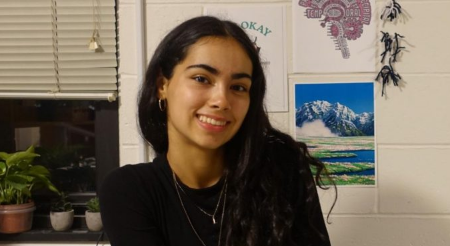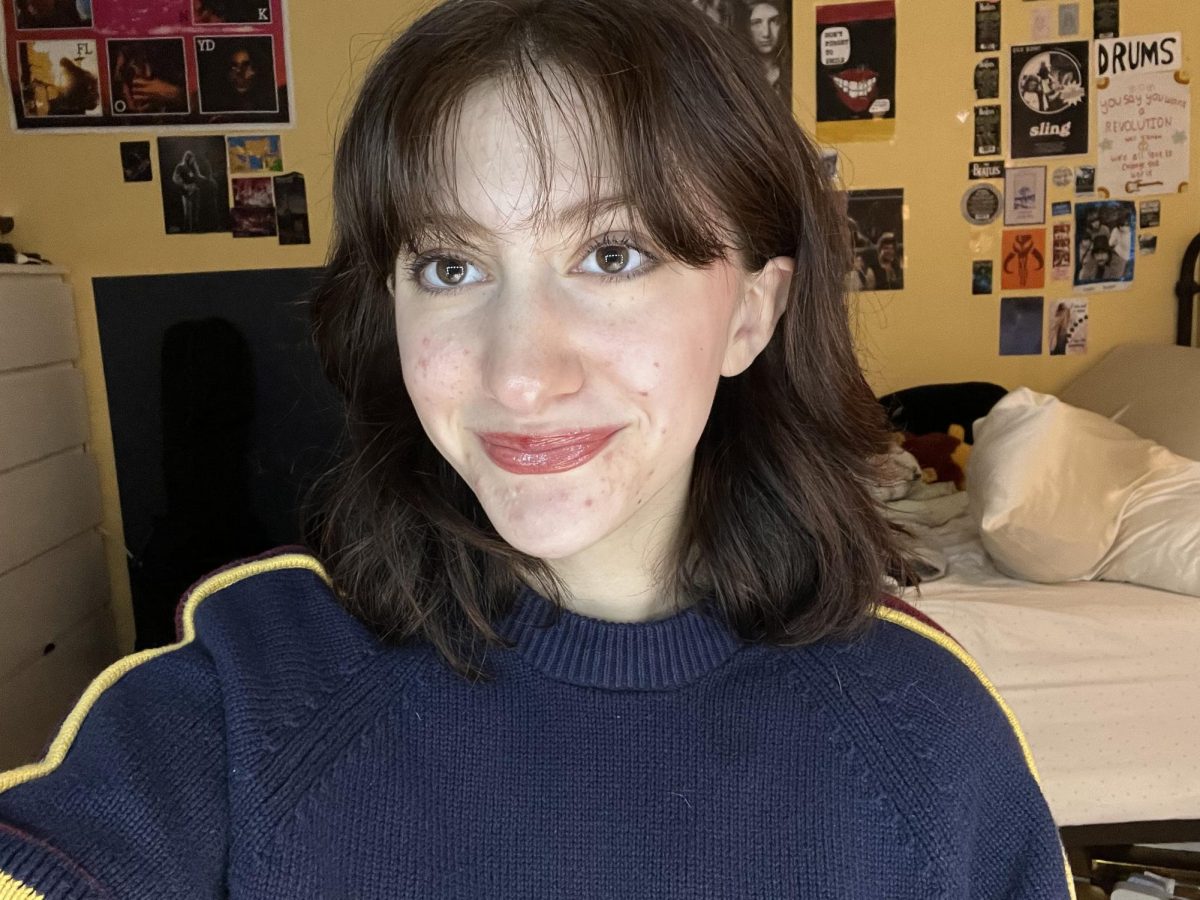
For years, my little sister has been taller than me.
At age 17, I stand at 5’3”, while she, at 15, is 5’11”. Nearly everyone comments on this eight-inch discrepancy—if they realize we’re related at all. Last spring, our lacrosse coach put her on the varsity team and designated me a swing, later apologizing. “It’s so funny,” she said, “I didn’t even realize you were related! She’s, like, a foot taller than you.”
It wasn’t always this way. I still remember the several formative years when she, literally and figuratively, looked up to me. There’s an old photo of us, taken when she was just a few months old, her tiny body half as long as mine, where I am “reading” to her from memory. The book was titled I’m a Big Sister, and I knew the words by heart. Three years later, I whispered to her—late at night from the top of our bunk bed—that she was sure to succeed in preschool because she could already count to 20. I couldn’t see her smile, but I knew it was there. And when we played Just Dance on our Wii in the basement, she copied my movements instead of watching the television screen. I took pride in my ability to be a role model–a leader–the taller of the two of us.
I’m not sure exactly when our roles became reversed. Could it have been the time I laid facedown on the soccer field, refusing to play, and she volunteered in my place? Or maybe it was the time that well-meaning Trader Joe’s employee recognized her as the big sister instead of me. “Make sure you behave,” he instructed her. “Your little sister is watching.”
Regardless, our height difference became increasingly pronounced, etched into reality by pencil marks on the pantry doorframe. The two-and-a-half years I had on her became obsolete, and I began to feel led by her—especially as I began to face social struggles that she did not.
When we moved to a new house and finally got our own bedrooms, the differences between us were made clearer. Her room was laden with tournament medals, pictures of her teammates and friends, makeup, and clothes. I had no teammates, fewer friends, and hated shopping, so my bedroom felt comparatively sparse. I felt this emptiness everywhere—at school, in public, or anytime she wasn’t there, exuding her warmth and effortless confidence.
Yet there were some things I had that she didn’t. In my room, I collected books, leather-bound journals, old record albums, and art projects-in-progress. I decorated the walls with vintage posters and kept it tidy. My life wasn’t flashy on the outside like hers, but my inner world was flourishing, and this was a benefit for both of us.
I realized this truth two hours before my junior prom, as she towered over me once again. Her smooth, blonde strands grazed my brown curls as she blotted concealer under my eyes. Doing my prom makeup had been her childhood wish, spoken aloud years earlier as we played “hair salon” with our Barbies. She vented about school and her ongoing struggle with geometry. I listened, and promised to make sure she understood everything before the final. I really was her big sister, after all.
As an older sister, a leader in my own right, I know that our shared experiences have built both of us from the ground up. We are still the same girls that played hair salon and ran rampant through Trader Joe’s. We will never be the same in height, but we are equal in stature.
This is how relationships work—how leadership works. I was never meant to be perfect or blindly followed and eternally worshiped. Neither was my sister, or any human being. We instead must find power in mutualism, and learn to accept our faults in order to benefit from others’ strengths.
Here’s what Natalie said about her essay:

It took me a while to decide on a topic to write about. I remember experimenting with a few different ideas that all seemed too vague or too broad. It seemed for a while that every essay I tried to write was convoluted, and the ideas conflicted with each other. I ended up getting really frustrated and decided to scrap all of my drafts entirely.
My final idea came to me randomly in the shower. It was lucky that an idea fell easily into my lap, which isn’t always dependable. However I would recommend to the incoming seniors to just keep writing and brainstorming, and eventually something will click. If you don’t like one idea, move on and start another. Don’t feel bad because trying different ideas is all a part of the process.
My biggest piece of advice is to choose a topic that is relatively simple. You don’t have to be super existential or philosophical to write a good essay. Actually, I personally think it’s better to avoid that route. Picking a simple memory or aspect of your life to highlight can come across as more vulnerable, and your genius can shine through in how you write and reflect.





